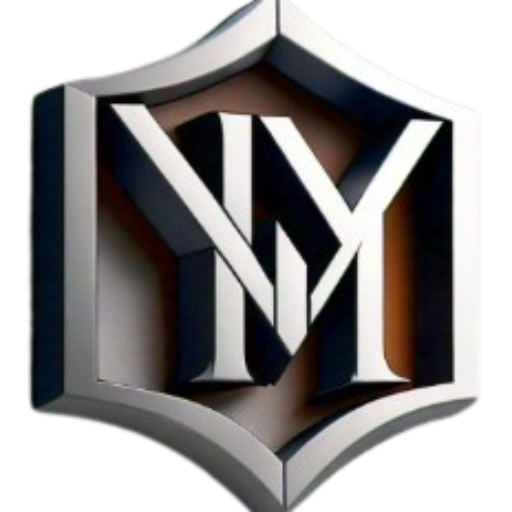When looking for a television service provider,sometimes two names tend to be mentioned over and over: DISH Network and regular cable.There are advantages and disadvantages to each,it’s just a matter of where your particular needs run rubber up against finances or other factors.By reading this article you’ll be able to gain a fuller understanding about both DISH Network and Cable Television.
1. Understanding DISH Network:
When it comes to DISH TV,things are up to date.DISH sends programming via satellite.So an agricultural link-up is mandatory at homes if you’ re going to partake in the fun.We cannot find stereotyped customers for any particular setup.It is equally popular in urban or rural environments,equally popular in areas with cable-ready TV and spots where the cable simply cannot go.
2. Cable TV Basics:
The connection between your home and the cable company that provides you with service is a physical one.The popularity of cable TV since the beginning of film and television history is no secret.Except in this case more technological advances enable us to enjoy local and national programming Cable operators in order to provide services such as TV’s connection with more than one channel bound into one signal network,or on past enabling devices some homes can’t receive cable television service at all.
3. Comparing Channel Lineups:
For many TV viewers,the diversity of channels is an important concern.DISH Network offers a variety of channels: sports, news, entertainment, with some exclusive offerings and niche packages of its own.Many satellite packages also include international programming options.
Cable television providers generally offer the same amount of channels, local channel availability might even be better often However,cable companies often have their own channels which are unique to the company or special sports networks (local ones) which DISH can’t receive.
4. Pricing Structures:
Pricing is a significant consideration for many consumers.DISH Network often has lower starting prices and more transparent pricing models.A regular practice is to launch promotions targeted at new consumers.Among these are special discounts and complimentary premium channels but only for a limited period of time.
Cable TV,while competitive,can sometimes be more expensive due to the inclusion of fees for equipment, taxes,and bundling requirements.Cable prices may also increase after promotional periods,so long-term costs could be higher than initially expected.
5. Equipment and Technology:
For Hopper 3 DVR’s examples,you can record 16 shows at a time and keep 2000 hours of shows on storage.In addition to your dish TV boxes mentioned above,DISH also provides voice remote controls technicians to integrate with smart home devices and have a plethora of streaming applications pre installed.
In the meantime, cable TV providers offer DVR options as well,but there is no guarantee that they can fit your needs to the same degree as DISH might do.Cable systems are often easier to integrate with broadband internet,but technology varies by provider.
6. Reliability and Weather Concerns:
A common problem with the DISH network is poor reception caused by weather.Because satellite TV depends on having its signals come in clear from space (barriers such as heavy rain, snow or thick clouds will sometimes stop transmission altogether),poor reception makes for an unhappy customer.Still, over time DISH has worked to make sure that its signal quality has improved and nowadays most customers are able to get good enough service from it.
Cable TV, however, is generally more impervious to weather-related hiccups as it relies on landlines. Power outages or lines physically damaged can still,of course,cause problems and interrupt your service, but it is far better off than satellite whenever the weather really goes to hell.
7. Installation and Setup:
DISH Network installation requires a satellite dish to be installed on your property, which may take longer than cable installation. The process is usually handled by a professional technician, and DISH often offers free standard installation for new customers.
Cable TV installation is generally quicker, as it simply requires a connection to the existing cable infrastructure.With some providers now even offer self-setup packages, if you have the patience and energy to wait out a little longer than normal but can do without a technician at your side to set up data service mode on your shiny new computer (they’re not really necessary anyway; just follow their instructions and you’ll be up), then give it a try.
8. Contract Terms and Flexibility:
When looking for TV service, try to get one which does not require an annual contract or impose penalty fees for early termination. However these prices just buy you one year of service at current levels. After that you will be paying regular monthly fees whether it be from DISH Network or someone else.
You may get a contract from your cable company as well. Some companies allow monthly or no contract rates for people who wish to test the waters, so be careful not to fall into any trap where the price goes up on you after a year.
9. Customer Service Reputation:
A reputation for good customer service makes Dish Network a popular choice with consumers. It regularly ranks near the top in customer satisfaction surveys and offers both 24 / 7 hotline support and a variety of online troubleshooting resources.
Cable TV companies generally get many mixed reviews on their customer service level. A significant proportion of customers claim that it takes too long to get through on the phone or that service quality is inconsistent. With different operators, there may be different performance levels.
10. Internet and Bundling Options:
Cable television provides the convenience of bundling services. With most cable companies offering internet and phone services alongside TV, there are considerable savings to be had here. Thanks to fibre-optic internet provided by a few cable companies, you can now have the fastest and most reliable internet in most homes on the market.
Although DISH Network does not provide internet services, they will often partner with companies that do and offer bundled deals. But in most cases you have to get your internet separately and this can be more inconvenient.
11. Future-Proofing Your Choice:
For DISH Network, they have added a function as a DVR so that users can watch streaming apps such as Netflix and Amazon Prime directly on the big screen – all at their fingertips while watching something live.
Cable TV companies are moving with the times too. Many now offer their own apps and on-demand services to enable subscribers to live streaming OTT content on mobile devices or online platforms.
12. The Unsubby Factor:
For those customers who want flexibility, DISH Network offers Sling TV which is a live streaming service of its own, available without any long-term contracts. In Sling TV, you are not wedded to any channel and can opt at will To unsubscribe from whole groups of one’s selection or even the entire service. A number of cable companies have come out with their own online live broadcast services.One distinguishing mark between those offerings and theirs is that customers usually (or always )need cable to receive their service.
Conclusion:
All that lies between DISH Network and cable is ultimately what you want. Technology, pricing, good customer service: DISH Network does it all very well. Cable TV is great when it’s bad weather and offers better bundling options and quicker internet response. By giving due consideration to what matters most to yourself whether that’s channel variety, pricing or flexibility you’ll be sure to come out ahead in any home entertainment configuration.




